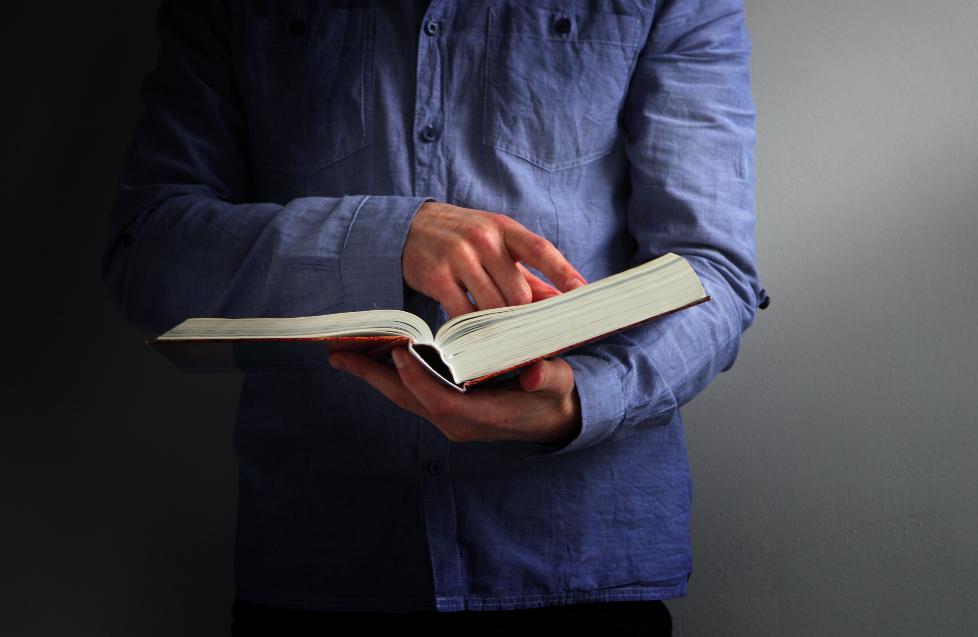By David Faust
 I like to think I would have been different.
I like to think I would have been different.
When I read Bible stories and place myself in the sandals of Jesus’ original disciples, I like to think I would have reacted differently than they did.
When parents brought their children to Jesus, surely I wouldn’t have shooed them away. If I had been in the boat when Jesus walked on water, surely I would have stepped out with Simon Peter and walked on top of the stormy waves without sinking. When Jesus’ teaching became more demanding and the fickle crowds began to scatter, I like to think I would have stayed by his side. If I were one of the 10 men Jesus healed of leprosy, surely I would have returned to express my gratitude.
I like to think I wouldn’t have pursued prestigious positions like James and John did. I wouldn’t have doubted like Thomas, worried like Martha, or criticized like the Pharisees. I like to think I would have refused to join the cry when the multitude shouted, “Crucify him!”
‘What Do I Still Lack?’
I like to consider myself different from the rich young ruler. When Jesus quoted some of the Ten Commandments the fellow smugly replied, “All these I have kept.” But to his credit, the young man went on to ask Jesus, “What do I still lack?” (Matthew 19:20).
He must have been stunned by the Lord’s reply. “Jesus answered, ’If you want to be perfect, go, sell your possessions and give to the poor, and you will have treasure in heaven. Then come, follow me.’ When the young man heard this, he went away sad, because he had great wealth” (vv. 21, 22).
Isn’t it striking to read that this man was “sad, because he had great wealth”? What a strange reason to be sad! Most of us would be happier if we had great wealth. Hey, if you have to be in a bad mood, you may as well do so while driving a nice car, living in a comfortable house, and eating fine food. Money can’t buy happiness, but it certainly takes the edge off misery!
The problem was, this young man didn’t just have great wealth; his wealth had him. Ironically, his possessions owned him. They prevented him from responding to the direct call of God’s Son. His problem wasn’t the economy; it was his ego.
The Lord continued, ”Truly I tell you, it is hard for someone who is rich to enter the kingdom of heaven. . . . It is easier for a camel to go through the eye of a needle than for someone who is rich to enter the kingdom of God” (vv. 23, 24). But of course, a camel can squeeze through a needle’s eye if God wills, for “With man this is impossible, but with God all things are possible” (v. 26).
I like to think I would have grasped what Jesus was saying. I hope I would have trusted so completely in the God who does the impossible, I would have given away all my possessions to follow the Lord. But when I’m brutally honest, I must admit that I am capable of immense ingratitude, selfishness, pride, cowardice, and greed. What would I really have done if Jesus asked of me what he asked of the rich young ruler?
What would you have done?
CONSIDER:
1. Do you own your money, or does your money own you?
2. If the Lord asked you to give all of your possessions away, how would you respond?
David Faust is president of Cincinnati Christian University, Cincinnati, Ohio, and past Executive Editor of The Lookout.
The Lookout’s Bible Reading Plan for February 24, 2013
Use this guide to read through the Bible in 12 months. Follow David Faust’s comments on the highlighted text in every issue of The Lookout.
Matthew 17:14–27
Acts 24
Psalm 39
Leviticus 5—7
Matthew 18:1–14
Acts 25:1–12
Psalm 40
Leviticus 8—10
Matthew 18:15–35
Acts 25:13–27
Psalm 41
Leviticus 11—13
Matthew 19:1–15
Acts 26:1–18
Psalm 42
Leviticus 14, 15
Matthew 19:16–30
Acts 26:19–32
Psalm 43
Leviticus 16, 17
Matthew 20:1–16
Acts 27:1–26
Psalm 44
Leviticus 18—20



Comments: no replies